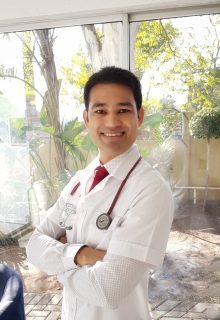With the enforcement of ongoing lockdowns, the wearing of masks, and social distancing, COVID-19 has permeated every facet of our society. Everyone knows at least one person who has been affected by this novel virus. Moreover, worldwide, COVID-19-related deaths continue.
Understandably, many have begun to question their mortality and consider ways to boost their immunity and resilience to the pandemic. In this post, two specialists who are members of AAMSSA, share their non-surgical insight into the key pointers everyone needs to consider to age well, even during a pandemic.
Inside Out
Skin aging occurs as a result of many factors, which are often grouped into two categories: intrinsic and extrinsic factors. Intrinsic factors relate to one’s genetic makeup, cellular metabolism, hormones, and metabolic processes. Extrinsic factors include chronic light exposure, pollution, radiation, etc.
Yes, there isn’t very much that can be done to change one’s genetics. However, some of the other factors of aging can be more easily targeted.
As medical doctors, we have a variety of non-surgical procedures (such as anti-wrinkle injections, dermal fillers, chemical peels, and thread lifts) in our armamentarium to combat skin aging. However, below are some pointers on the things you can do from a non-surgical perspective to get you looking at the way you still feel – healthy, vibrant, and filled with vitality.
Sunscreen, Sunscreen, Sunscreen

We are all aware that excess sun exposure is one of the leading causes of skin cancer; however, the sun is also one of the main culprits of premature aging of the skin. This results in wrinkles, loss of elasticity, laxity, and pigmentation dysregulation.
In practice, applying your sunscreen at the start of the day provides a fairly limited duration of protection (even with a high SPF rating). So, reapplying your sunscreen throughout the day, while avoiding direct sunlight exposure during the heat of the day, remains one of the most effective anti-aging strategies.
Quit Smoking
It’s now well established that smoking aggravates skin aging. Smoking not only affects the skin’s microvasculature, but also hinders the skin’s healing processes, ultimately resulting in rough skin, with a loss of elasticity and the formation of telangiectasia (small dilated blood vessels).
Getting Enough Sleep Is Important Non-Surgical Advice
Chronic poor-quality sleep has been associated with aging. This includes worsening fine lines, uneven pigmentation, hanging eyelids, and darker under-eye circles. Furthermore, good sleepers also tend to heal faster from disruptions to the skin barrier.

This really brings home the term “beauty sleep”! So even though COVID-19 may be keeping you up at night, be sure to get enough shut-eye.
Use Good – Quality Homecare
There are a host of homecare products available on the market. However, not all products are suitable for all skin types. When it comes to non surgical anti-aging solutions, be sure to consult your aesthetic medical doctor. He/she will prescribe the most appropriate home care regime for your specific skin type and degree of skin aging.
Who Are The Authors?
Dr. Shahien Dollie qualified at the University of Cape Town in 2006. He had gained experience in Family Medicine and Orthopaedics, before finding his passion for Aesthetic Medicine. He now attends and presents at local and international Aesthetic Congresses.

Dr Shahien Dollie
Dr. Zeenit Sheikh qualified at the University of the Witwatersrand in 2008. The following internship gained 4 years of experience in the field of Psychiatry prior to entering the exciting industry of Non-Surgical Aesthetic Medicine.

Dr Zeenit Shaikh
Both doctors are members of AAMSSA and have graduated cum laude with Advanced Diplomas in Aesthetic Medicine, reflecting their keen passion and commitment to the field of Aesthetic Medicine. This course, coordinated via the Foundation for Professional Development, is run for over two years. It focuses on a myriad of areas within Aesthetic Medicine. It is also the only Health Professionals Council of South Africa (HPCSA)-recognized aesthetic course in South Africa.



![women [longevity live]](https://longevitylive.com/wp-content/uploads/2020/01/photo-of-women-walking-down-the-street-1116984-100x100.jpg)










